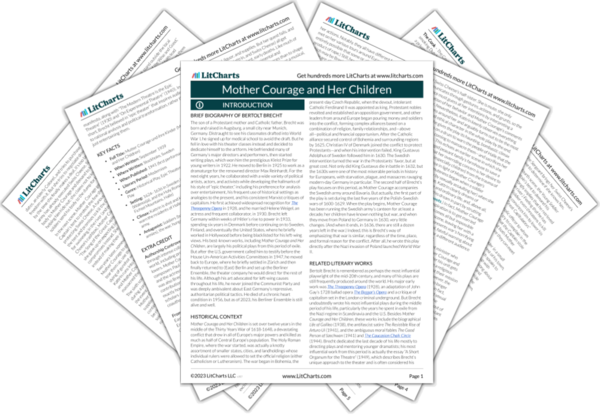Kattrin’s actions, like trying on Yvette’s boots and rescuing the peasant family’s baby, have demonstrated both her desire for love and her maternal instincts. Notably, marriage would also free her from Mother Courage—and the life of war profiteering that, despite her muteness, she clearly disagrees with. In fact, Mother Courage makes an important revelation about the origins of Kattrin’s muteness, too. Her comment raises more questions than it answers, but she seems to be suggesting that a soldier sexually assaulted Kattrin when she was a child. In this way, Kattrin’s muteness represents the trauma that war inflicts on the innocent—particularly women and children.
